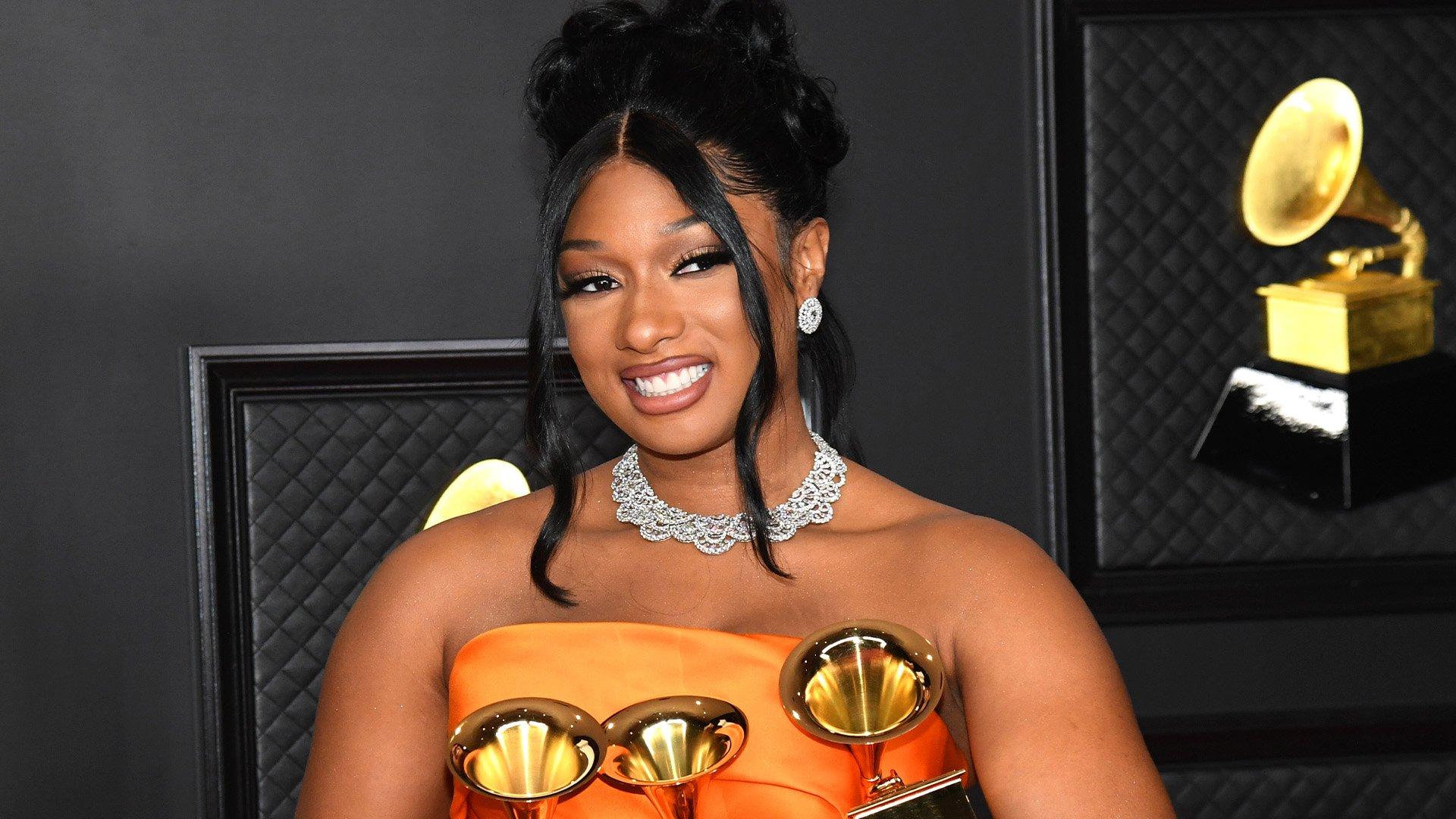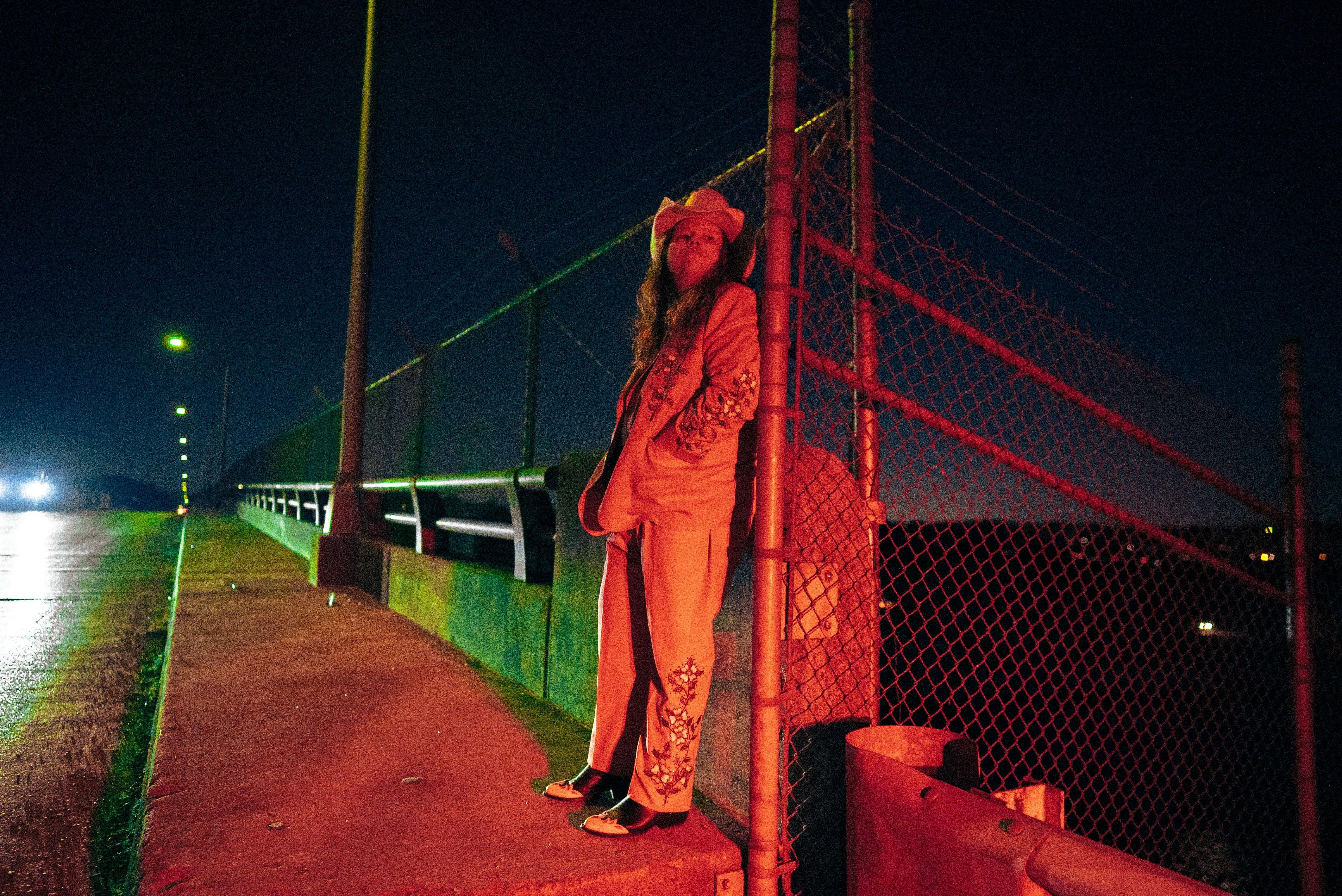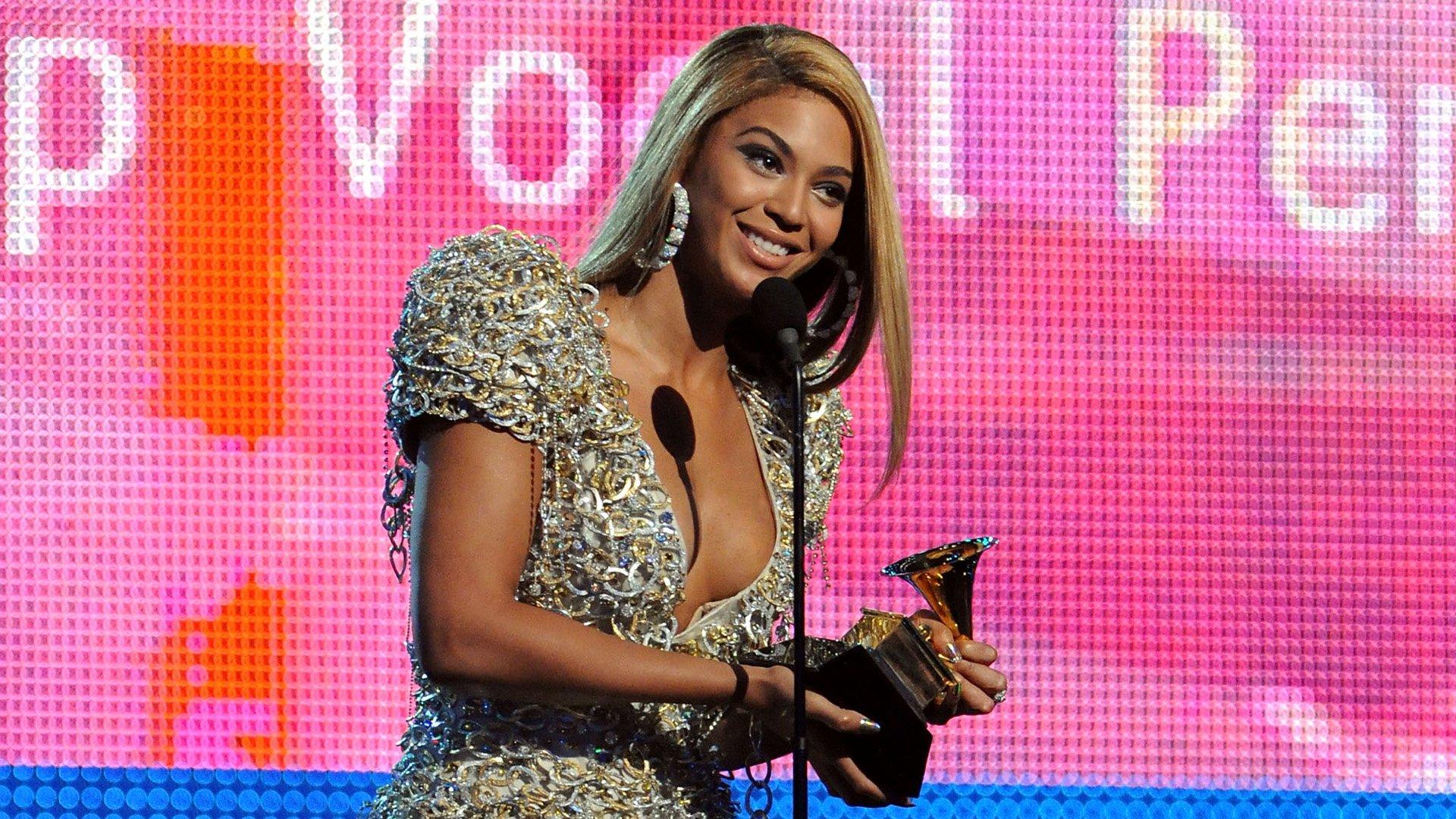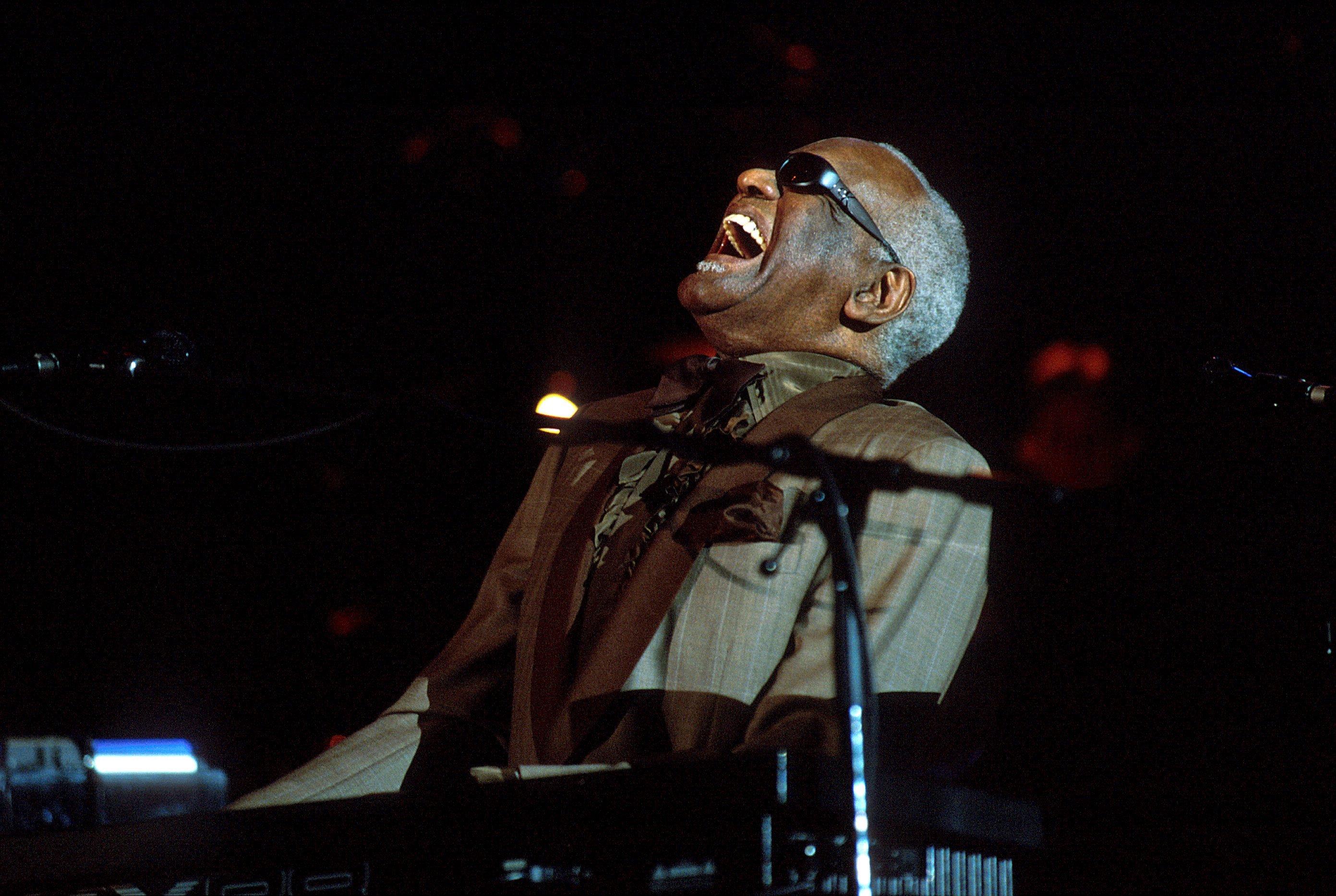I'll just match your energy. I love a good lie-down too.
That’s what flitted through young guitar great Marcus King’s mind as he worked with the preternaturally serene Rick Rubin — the prospect of which had blown his mind. (“I was just in a hotel room, beside myself with disbelief,” he told Variety about getting that phone call.) Despite any jitters, “we just kind of hit it off in that energy realm. It's positive.”
This isn’t how the GRAMMY nominee is used to working: when he hooked up with the Black Keys’ Dan Auerbach to make his last album, Young Blood, it was a more methodical and structured approach while Rubin’s is more relaxed and unconventional.
But these sessions were no spa days: perhaps in a Rubinesque paradox, King’s art bored deeper into his own psyche, and he focused like never before. But despite King’s openness about his struggles, and songs titles like “F*** My Life Up,” “Soul It Screams” and “Save Me,” his latest album, Mood Swings — released in February 2024 — doesn’t sound like a thrashing, cathartic nightmare, but sweet, healing soul music.
King can shred — but like his heroes, including mentor Eric Clapton, he serves the song always. “I don't like to do it where it's gratuitous, and I just like to play what needs to be played and say what needs to be said,” he said of his soloing on the record. “It was certainly a garnish that we held off on until the very end.”
Read on for an interview with King about the making of Mood Swings, his guitar and rig thinking, and the uneasy relationship between trauma and marketing.
This interview has been edited for clarity.
Describe the bridge between working with Dan Auerbach and working with Rick Rubin.
Both are very profound individuals, and both of them I met in the same way, which was just out of the blue, cold called. And it just felt really similar and it felt like the right path. And I really just fell in love with Rick's energy as soon as I arrived in California.
And really different approaches — me and Auerbach stuck to a very regimented, some would say, Nashville approach. And we got a lot of really great stuff done together. And Rick's approach is wildly different and more lackadaisical.
I love Rick Rubin; I have all the respect in the world for him. But there’s sort of a dual perspective of him — what some call holistic, some might call hands-off. Did any perceptions of him melt away?
Well, I was really thankful. I'm almost finished with his book right now.
Rick, he's a fan first and foremost. It was really humbling to see that even someone with his pedigreed tenure as a producer and just a symbol of music as a whole, just to see that he still got nervous about interviews. And he still spoke about Paul McCartney like a fan — not as a peer, because they're both legendary in the music world. But he speaks about Springsteen and McCartney the same way that I would as far as them just being bigger than life.
I don't know, I didn't really have any preconceived notions about Rick, per se. I knew he was an eccentric producer, so I was expecting the unexpected. And for me, I try to match energies and I think maybe just some people are more thrown off by a barefoot yogi-esque producer lying down in the middle of a meeting while we're listening to music and stuff.
Are you kind of an all-genres guy yourself, as everyone knows Rubin is? I can’t imagine you sitting around all day listening to music that’s similar to yours.
Right, yeah. Very rarely do I listen to guitar music, even. I like to listen to all kinds of music, and just try to find inspiration from wherever it might be hiding. And that kind of changes from day to day.
What have you been listening to that might surprise people?
Well, I’ve been on a real Blaze Foley kick, which isn’t very surprising. Just a really wonderful songwriter out of Austin, Texas — a really tortured soul, and just an incredible voice. I remember a friend of mine actually introduced me to that music years ago. And when we both listened to it, it was a late night, but I remember we both just wept. He's got the most beautiful voice.
I find these songs sometimes, and the melody just kind of latches onto me, and I just listen to it over and over and over again. And this particular song by Blaze Foley, it's called “Rainbows and Ridges.”
And what's really interesting about him is there's hardly any good recordings of him. They're all just decent. And he never owned a guitar. He just borrowed them all the time and just kind of roamed from place to place. And there's obviously something romantic about that just to look at it as an artist. But he's a really interesting cat, man, and just one of those guys. I've been just being inspired by him again lately.
Stevie Wonder is another guy that's always constantly inspiring me. I got to meet him recently in LA for a brief moment, and that just relit that fire that I've always had. Early ‘70s Stevie Wonder when he did the “Sesame Street” theme song — I highly recommend you give that a Google.
What else am I listening to? I mean, I'm moved by Beyonce's new record. I heard that song “16 CARRIAGES” and how heavy those hits are when they come in. I want to figure out how the f*** they did that, 'cause it moves me greatly.
You called Foley a “tortured soul.” In the music industry, our conception of that has changed, in a positive way. But it remains archetypal, and reading your press release, you talk about deep, dark stuff. Does it ever become tiresome to talk about your darkest moments as a marketing need?
I've often worried that it may come across as some kind of a marketing ploy, but it's really just the truth. And I'm hoping to use my experiences, and my depression is something that I feel I'm in remission of.
And when I'm on the road and I'm staying on a healthy regimen and I'm avoiding these things that I like to do — or overindulge in, rather — I feel that I have an opportunity and an ability to truly emote, and allow myself to be a vessel for the energy to flow through. And I just want people to be able to hear that and people to latch onto that idea that we can use our shortcomings in mental health, I guess, is the only way I can put it.
For me, Rick was one of the first people to explain to me that I could use what I saw as shortcomings or challenges. He kind of encouraged me to use my bipolar disorder or my depression or anxiety as a writing partner.
And now I just know that, although right now I'm feeling positive, I'm on a good regimen, microdosing psilocybin and taking my vitamins — eating my Wheaties, as they say — working out and doing a lot of mindfulness practices, and writing and trying to stay healthy in all regards, I could still get off the phone and still be hit with a really big wave of depression, 'cause it's just something that I can't really predict.
I know the things that I can do to try to avoid it, but it's an unpredictable beast, and when it comes around, I just kind of view it as a writing partner and I just kind of view it as a time for me to get back to work and just hope that they leave after the songs are written.
Do you take a community-oriented approach to recovery and mental health? In other words, are you like one star in a constellation of like-minded people, in any sort of formalized system? Or are you the type to stick to your own business and keep it moving?
Well, I think that's a really fascinating perspective to take. I guess, in a lot of ways we are part of the same galaxy, as it were, especially since I'm inviting people to come out and take part in this experience that we're bringing from town to town, which is really just as much for me as it is for anyone who's attending.
I think a lot of the abandonment issues and my anxious avoidant attachment style and all, it's just healed a little bit each night from getting validation from folks who were kind enough to come out and see me.
I mean, I’m trying to just fully understand that as a positive, because seeking validation from strangers from night to night could be taken as a non-positive. But it's what I love to do, and I hope that someone else can get some healing from it the same way that I do.
I love your guitar playing on the record. I love players who can be flashy, but often opt to weave in and out — the Richard Thompsons, the Doug Gillards.
Well, I think I'm like you, man. I don't like to do it where it's gratuitous, and I just like to play what needs to be played and say what needs to be said. It was certainly a garnish that we held off on until the very end.
For instance, on "Delilah," it's obviously a produced solo, because it's six or seven layers on top of one another. And that was kind of by design, just playing directly through the board with a fuzz pedal, in kind of a [David] Gilmour approach.
But playing something that was from the heart, but knowing that I was going to stack it. I got to go back and play it. I'm doubling it and then putting a harmony on it. A little bit more thought out in that regard. You're not going to be as overly flashy if you know you got to double it — but at the same time, you’re still allowing it to be straight from the heart and not too overthought. Kind of balancing out that middle of the road.
But when I play live, there's always moments for improvisation, where we can go on a trip together, me and the band. And just kind of dance together in an astral realm, to put it in a hippie-dippy way.
Where are you at with your rig lately?
Live, I use my Orange amplifier we did together. We named it the MK Ultra, and it’s got six L6 [power valves] in it.
It was my approach to do a hybrid of my two favorite amplifiers. I wanted a Fender Super Reverb, but I wanted it to have the output authority of a Marshall or an Orange — that real British power, and they really did a great job with it. It's super simple, just volume, treble, bass. And I just wanted something that was super intuitive, plug in and play, and we definitely achieved that.
Who are your heroes, as per “British power”? I’ve been going down some weird late-Sabbath rabbit holes lately.
Iommi is certainly a hero of mine. His accident in the factory caused him to lose the tip of his middle and ring finger on his right hand — he was left-handed, so he played that way. He fashioned some fingertips for himself, and that’s why they tuned down. Just all this s*** that happened that felt like it was just meant to be. I don’t think they would’ve tuned down otherwise.
Robin Trower is one of my favorite guitar players — a really incredible sound, and a good example of a great Strat player. Who else? Clapton, obviously. He’s a friend and a mentor, and you can’t go wrong with Cream or Blind Faith era Clapton. Just pure Gibson through Marshall power.
I’ve loved Eric Clapton since I was a little kid. What’s it like to be in the room with him?
Well, it's another situation of just a really heavy presence, and he's always been so gracious and so sweet to me and my guys. I feel like when I see Clapton, he's like if the Olympics were a person. It's like every four years, I get to see him and spend some time with him and borrow some of his energy.
The last time we hung out, he was really so gracious with his time and spoke with me and my dad. And my dad just talked to him for half an hour about learning “Sunshine of Your Love” when he was in high school, and he was just so cool about it. He could have had a s****y attitude about it, but he was just as gracious as could be, and I really admire that.
So many people of that stature would not give a damn, and it would show.
I think that's part of the thing that's so cool about him. He felt that what my father was saying was earnest and true, and I think he had enough respect for me to understand I wouldn't be doing what I'm doing if my father hadn't been inspired by his playing in the first place and then taught me to play guitar later with those same riffs. I mean, it's all just so meant to be. He's a really deep, deep guy.
That’s a guy who’s been to hell and back. I’m sure you’ve had great conversations along those lines.
He's definitely an inspiration to us all who have that devil inside of us. He's certainly a good resource and he's provided a lot of good resources too. Yeah, he's a beautiful guy.
Anything else on your mind about Mood Swings before we hop off?
It's just a full release of where I was at mentally, and I hope that it resonates with people — whether it resonates with you personally, or from an empath standpoint. Maybe you know someone, maybe one of your loved ones is someone who struggles with these kinds of issues.
And if you don't want to go that deep with it, I mean, [drummer] Chris Dave and [organist] Cory Henry are dope as f***. Just enjoy it from the musical side of it.
Living Legends: Van Morrison On New Album Moving On Skiffle, Communing With His Roots & Reconnecting With Audiences




